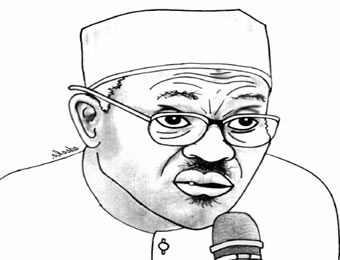
If not, how could the sustained rise of poverty in Nigeria have gone unchallenged despite the stupendous resources at her disposal? How could poverty in the country have escalated from 15 per cent in 1960 to 67 per cent in 2018? How could the number of those living in extreme poverty in Nigeria have risen to 87 million? How could the number of the poor in Nigeria be more than the entire population of five West African countries; Ghana, Togo, Cote D’Ivoire, Republic of Benin and Liberia? How, if not that systematic escalation of poverty in the land is a deliberate policy of the state to put the masses in chain?
ALSO READ: Saraki persevered through court processes – Buhari
Within 30 years, China was able to lift over 500 million people out of poverty. Similarly, India, which until last year had the highest number of poor people in the world, was able to move 239 million of her poor nationals out of poverty in 25 years. However, on the contrary, the number of the poor in Nigeria has increased almost 1,000 per cent from 9million in 1960 to 87 million in 2018. According to the Brookings Institution, a nonprofit public policy organization, six Nigerians slide into extreme poverty every minute. How can this be if not that the ruling class is resolute to keep the masses so poor that they will be deprived of both the physical stamina and mental capacity to challenge their misrule?
Cowing citizens through the instrumentality of poverty has always been the strategy of maximum rulers, which the ruling class in Nigeria is fast turning into.
Joseph Stalin, Premier of the defunct Soviet Union, deliberately deployed poverty as a weapon of extracting allegiance from the people with a view to keeping the Communist Party of the Soviet Union in power perpetually. According to a Soviet novelist, Chingiz Aitmatov, the author of Jamila, in 1935, Stalin assembled his closest associates for the purpose of imparting a message to them. When everyone was seated, he took a live chicken, clenched it in one hand and began to systematically pluck out its feathers. As the chicken wimped and struggled to escape, the Soviet leader continued with the painful denuding until the chicken was completely sans feathers. Then, he turned to the people and said, “Now watch.”
He put the chicken on the floor and moved away from it while holding some grains in his hands. On seeing the grains, the denuded chicken hobbled towards Stalin and clung to the legs of his trousers. He moved away from the bird and dropped some grains as he moved. The chicken followed him around the room, picking the dropped grains. He later sat down and held out his hand with some grains to the bird, despite the affliction which Stalin a while earlier had visited on the bird, it pecked the grains out of his hand.
Again, Stalin turned to his lieutenants and said, “this is the way to rule the people. Did you see how that chicken followed me for food, even though I had caused it such torture? People are like that chicken. If you inflict inordinate pain on them they will follow you for food the rest of their lives.”
Members of the Nigerian ruling class have shown that they are good students of Stalin. Rather than create an enabling environment that will make the citizens thrive, the ruling class has made it extremely difficult for the average citizen to prosper. So, they dangle rice, millet and corns before the people who sheepishly follow them. The ruling class has so impoverished the populace that N5,000 is regarded as a life saver by majority of the people. The Nigerian people have been so robbed of their dignity by poverty to the extent that anyone who gives them a four-yard fabric is worshipped as the Messiah. The people are so poor that they have lost their sense of what is right. The citizens have been battered to the point that the barometer by which they measure development is a bowl of food.
This strategy of the Nigerian ruling class is in tandem with the findings of a team of scholars from Princeton, Harvard, and the University of Warwick who submitted that poverty reduces the cognitive capacity of the poor because poverty-related concerns consume mental resources, leaving less for other tasks. The study concluded that poverty imposes such a massive cognitive load on the poor that they have little bandwidth left to do many of the things that might lift them out of poverty.
The import of the research is that the poor are so consumed by their poverty that they cannot think about any great idea; they are so caged by their deprivation and destitution that their major concern is how to survive the day, they have little considerations for taking decisions that will effect a positive change in their lives. This explains why the poor have a poor estimation of their self worth and have no consideration for personal dignity. Their concern is survival, not any exotic ideal. Their focus is the moment, not the future. Hence, they follow leaders who dangle grains before them despite knowing that the same persons are the reasons for their affliction.
But those oppressing the masses should not jump into any premature celebration for conquering the people. If communism which had a stranglehold on the people eventually crumbled, there is no doubt that this oppression of the Nigerian masses will soon arrive at the terminus. The oppression has survived for so long because the capacity of the poor to absorb pains, humiliation and deprivation is very elastic. However, science has taught us that every elastic material has a limit after which it can no longer take the applied pressure and therefore snaps. The elasticity of the Nigerian masses is inching close to its limit. Once that happens, the French Revolution would be a child’s play.






